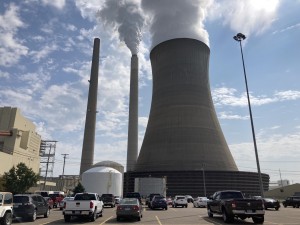From an Article by Ivy Main, Virginia Mercury, June 10, 2022
Most people are aware by now that inflation has hit the energy sector hard, with fossil fuels in particular skyrocketing in price over the past year.
Dominion Energy Virginia, the VA state’s dominant utility, says it needs to charge residential customers an extra $14.93 per month on average to cover higher natural gas prices. Appalachian Power, which serves Southwest Virginia as well as West Virginia, has already asked the West Virginia Public Service Commission for permission to increase residential bills by an average of $18.41 to cover higher coal and gas prices, and is likely to seek a similar increase from Virginia customers this summer.
But for residents of Southwest Virginia, that could be just the beginning of the rate increases: West Virginia wants to force APCo customers to pay even more, and not just in West Virginia. If the West Virginia PSC has its way, Virginia customers would have to shoulder their “share” of the cost of propping up two money-losing West Virginia coal plants.
The PSC’s order of May 13 reiterates previous instructions to APCo to keep its West Virginia coal plants running at least 69 percent of the time, even when the plants lose money. This decision comes on top of a decision in October of 2021 allowing APCo to charge customers for hundreds of millions of dollars in costs to prolong the life of these coal plants out to 2040. An expert hired by the Sierra Club found it would cost up to $1.1 billion more to keep the plants operating until 2040 instead of retiring them in 2028.
Note the upcoming hearings ~ https://www.wvpublic.org/energy-environment/2022-06-06/psc-to-hold-4-public-hearings-on-appalachian-powers-rate-request
For Virginia customers, the problem is that these West Virginia coal plants, Amos and Mountaineer, also provide electricity to Southwest Virginia, so Southwest Virginia residents have to pay for them. Even before the fuel price spikes of the past year and a half, APCo wanted to charge its Virginia customers for the upgrades approved by the West Virginia PSC. The company will certainly also want Virginians to pay for the even higher costs that will follow from the 69 percent run requirement.
Virginia’s State Corporation Commission has so far held off on approving the millions of dollars that would be Virginia’s share of the costs to upgrade Amos and Mountaineer. But with the West Virginia PSC plowing ahead to support its state’s favored industry, it’s not at all clear the SCC will stand its ground.
APCo’s study claims that closing Amos and Mountaineer will cost ratepayers more than keeping them open, ensuring there will be a battle of the experts come the September hearing. The study is opaque in its methodology and reasoning. But APCo almost certainly didn’t assume the plants would have to run 69 percent of the time regardless of market conditions, and it probably also didn’t factor in today’s sky-high fossil fuel costs that further support retiring the coal plants and investing in cheaper, price-stable wind and solar.
Obviously, the biggest losers here are West Virginia residents. They will bear the largest share of these costs, one more price of living in a state run by fossil fuel oligarchs.
In an alternate universe, West Virginia would have developed an economy that took advantage of its extraordinary natural beauty, one based on small farms, four-season tourism, artist enclaves and vacation homes: think Vermont but with better weather. Instead, fossil fuel and mining barons bought up mineral rights, paid off politicians, and despoiled vast swaths of the state, leaving most residents dependent on dirty jobs or piecing together a living from low-wage work.
I’m rooting for West Virginia to change course for a post-coal world, but that’s not easy for a state where politicians, bureaucrats and industry conspire to maintain the power of extraction industries. Virginians, however, shouldn’t be forced to enable this misuse of power. The SCC should reject West Virginia’s effort to make Virginia customers pay to prop up West Virginia coal.

